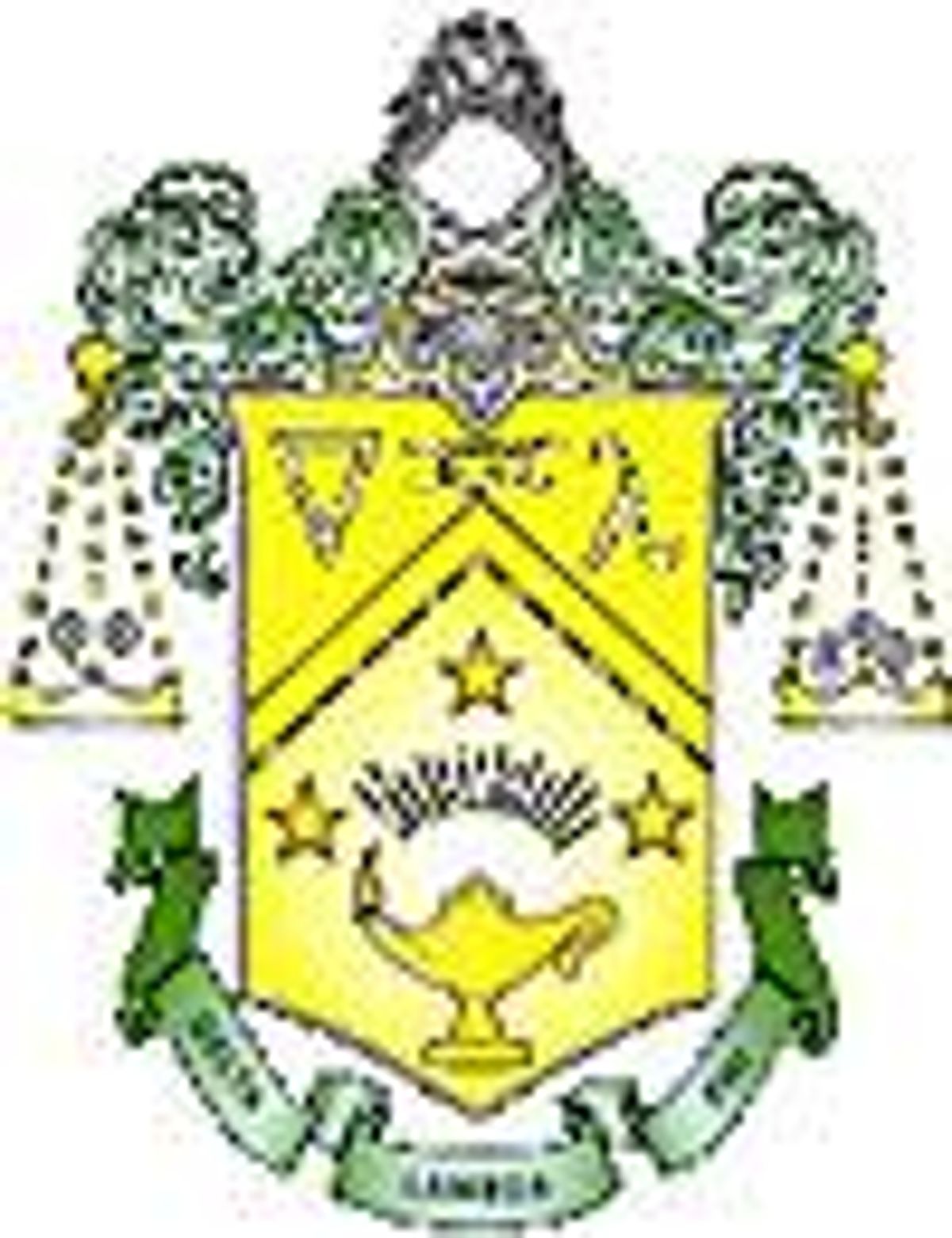All Rights reserved
By continuing to use our site, you agree to our Private Policy and Terms of Use.
In a world that values beer busts, hazing, and crass behavior, college fraternities don't come off as the most gay-friendly of organizations. But Delta Lambda Phi, a national fraternity for gay and bisexual men with headquarters in Washington, D.C., is working hard to change that image, and it celebrated its 20th anniversary this year.
A frat for gays? It's true, explains Randy Hubach, the organization's national vice president of outreach. "Delta Lambda Phi, like most fraternities, serves as a second family and brotherhood, networking organization, and professional development organization for our members," he says.
Delta Lambda Phi was the brainchild of Vernon Strickland III, who with three wealthy benefactors created in 1987 the Alpha chapter, the fraternity's first. "The creation of a gay fraternity seemed a natural extension of the movement towards increased visibility," says Strickland, now a prominent attorney in the D.C. area. He explains that the LGBT movement informed the fraternity's mission from the beginning.
"In 1986 the national political scene was dominated by Jerry Falwell and his fundamentalist Moral Majority organization," says Strickland. "The Reagan White House wanted gays to be invisible. Gay rights or marriage was not even discussed, and although AIDS was a known pandemic by that time, Reagan would not speak the term 'AIDS' publicly [until 1985]. The national gay movement was focused on the repeal of sodomy laws, and [Georgia's Bowers v.] Hardwick case was being taken to the Supreme Court; but the court upheld the sodomy law by one vote."
Then a 20-something Georgetown University law student, Strickland acted as the informal legal counsel for a fellow student who had been denied a membership bid from a fraternity based on the presumption that he was gay. After hearing similar stories from other parts of the country, Strickland became aware of the pervasiveness of behind-the-scenes fraternity procedures that kept "gay" men--supposed or actual--from receiving bids.
Under Strickland's direction, Delta Lambda Phi founded itself on three basic principles: to provide dignified and purposeful social, service, and recreational activities for progressive men, irrespective of sexual orientation; to lead in determining the rights and privileges of individuals in society; and to promote a strong and positive image as well as respect of the diversity of all individuals, irrespective of sexual orientation.
Twenty years later the fraternity is still growing, with 26 active chapters and seven colonies across the nation, including in a handful of red states. The Lambdas pride themselves on maintaining a strong social consciousness, engaging in issues such as HIV/AIDS, domestic violence, the homeless, and LGBTQ homeless youth. And they still have time to party.
Like any fraternity, the Lambdas battle the Greek stereotype. "[People] think we are like Animal House and Revenge of the Nerds: As either hordes of beer-guzzling, insensitive morons or one of the last remaining institutional bastions for elites. Neither is accurate in the slightest," says Adam Williams, 22, a brother at New York University. They also struggle with their image as the "gay frat." "As a fraternity for gay men, though not exclusively [for gays], we have to combat two unique misconceptions--that we're secretly a sex club, [and] the enshrinement of gay stereotypes," Williams counters.
And responses from other fraternities have often been less than welcoming. "Oftentimes the fraternity structures on many campuses are controlled by existing fraternities, in an entity called an Interfraternity Council, that are unwilling to share power and access with new start-ups," explains Dave West, a Lambda alumnus. "On my own campus, when Delta Lambda Phi was formed we sought admission to the Interfraternity Council." Yet even with gay members in other fraternities, the Lambdas were denied membership.
And although other campuses have been friendlier, there has been the expectation that the fraternity wouldn't last. "The other fraternities were aware of our presence but did not perceive us to be on a national scale," explains Hubach.
Despite these setbacks Delta Lambda Phi has continued to grow. There are over 2,500 active brothers nationwide, and the national office has received almost 200 e-mails this year from men interested in establishing a chapter at their universities. Later this year the fraternity will launch its first national public relations campaign, Stand Together. The campaign hopes to encourage brothers--whether current, alumni, or pledging--to "stand together to help themselves and to help their communities."
With a bright future ahead, "Lambda men are making their presence known!" as the brothers' motto states.


















































































